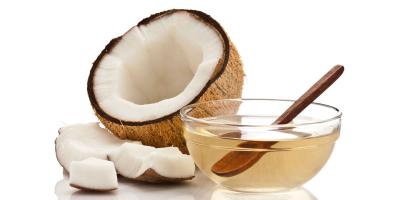
Bouncy, happy puppies are a real mood booster. To produce healthy pups that thrive, pregnant mama dogs need great nutrition from conception to birth — and afterwards, too. That’s where you come in. If you know what to feed a pregnant dog, you can keep your mom-to-be strong, content and well-nourished throughout her pregnancy.
This helpful how-to is all about nutrition for expectant and nursing dogs. Let’s dive right into the doggie bowl.
Feed Your Pregnant Dog Puppy Food
Let’s get right down to it. Your mama dog needs a lot of nutrition, and that means puppy food. Puppy food is nutrient-dense, so it provides far more energy than adult dog food. It’s also easy to eat and very palatable — just the ticket for a pregnant dog.
So, when should you begin feeding puppy food? In short, at about week six of pregnancy. Don’t simply swap her current food for puppy food, though — doing that could upset her tummy. Instead, replace an increasing proportion of her adult food with puppy food over the course of a week until she’s completely switched over.
A Note About Wet Versus Dry Food
Wet food typically contains fewer calories than dry food. If your mama dog usually eats wet food, make sure she eats a larger amount of wet puppy food to compensate. If you switch from a wet to a dry diet, offer her plenty of water to ensure she stays hydrated.
How Much to Feed Your Pregnant Dog
Don’t immediately increase your pregnant dog’s portion sizes. Like humans, pregnant dogs sometimes experience morning sickness, so she might go off her food for a while right at the beginning of pregnancy. With that in mind, try not to be too alarmed if she vomits occasionally. If she seems especially sick, however, give your vet a call.
Start increasing the amount of food you give your pregnant dog when she’s five weeks pregnant. Increase the portion size gradually — just a little more each week — until week nine. By the time she’s nine weeks pregnant, she should be eating about a third more than usual at every sitting — and her weight should have gone up by about 25%.
Don’t be tempted to overfeed your dog, though, because she could still become obese. Instead, give her measured portions of food several times a day. Later in pregnancy, you may need to reduce portion size and feed your pregnant dog more often: by this time, her growing puppies will make it hard for her to eat much at a time.
Feeding Tips for a Nursing Dog
She’s given birth to a litter of beautiful little puppies, and now, it’s time to nurse them all. So, how much should you feed a nursing dog? Once again, she needs puppy food. She’ll pass the nutrition in the food to her pups via her milk — plus she needs the nutrients to maintain a healthy weight after birth.
From postpartum week one to three, feed her three meals a day, rather than two. At the week four mark, increase her meals from three to four a day. The bigger her pups get, the more food she’ll need to nurse them.
After week four, you can begin to introduce her pups to puppy food, too. As their nursing needs decrease, reduce mama’s food quotient. Mama dogs nurse their litters for about seven or eight weeks in total. After that, you can switch her back to regular dog food.
Quick Tips: Nutrition for Pregnant and Nursing Dogs
Let’s learn a little more with this handy stage-based list of tips for pregnant and nursing dog nutrition.
The Basics
- Feed your dog an all-life-stage puppy food like Purina Puppy Chow while she’s pregnant and while she nurses her pups.
- The food you choose should have at least 1,600 kcal of digestible energy per pound of food — and it should be at least 22% protein.
- Give your pregnant mama dog as much food as she wants to eat — unless she has a tendency to put on weight.
- Always make water available for your dog.
During Pregnancy
- Switch your mama dog from her regular food to puppy food gradually.
- Begin increasing your dog’s food from about week five onward.
- By week nine, she should be eating about 25% more than usual.
- As her puppies grow, feed your dog small portions more frequently to compensate for lack of room in her abdomen.
- As she approaches labour, she might lose her appetite — this is totally normal.
Lactation and Weaning
- After the puppies are born, you can expect mama’s appetite to increase.
- When they’re three or four weeks old, begin to introduce your dog’s puppies to solid food.
- As the puppies eat more food, decrease the amount of puppy food you give mama dog.
- Moisten your dog’s food if she seems reluctant to eat.
- Pups will wean between six and eight weeks after birth.
- After your dog’s puppies wean, switch her gradually back to regular dog food.
Puppies are a whole lot of fun. With the right nutrition and care, there’s no reason your mama dog won’t thrive during pregnancy and beyond.
Related articles



